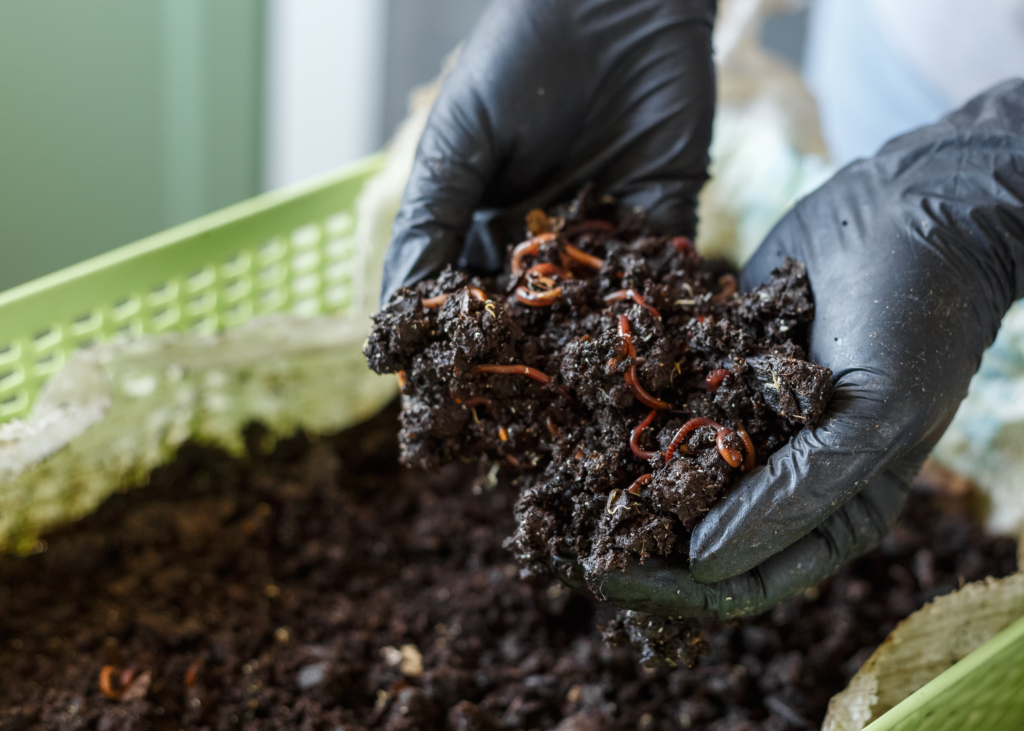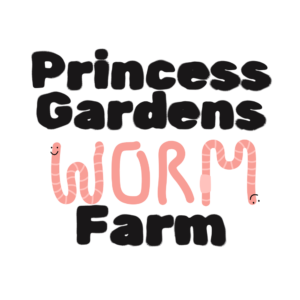
Here are a few Do’s and Don’ts I think are important to keep in mind when composting with worms.
Do –
Materials:
- All fruits + veggies (unless mentioned in the don’ts section)
- Egg shells (ground into a fine powder works best)
- Oatmeal
- Newspaper (regular paper works too but because its been treated I don’t use it often)
- Cardboard
- Pre-compost
- Coffee grounds
- Tea bags
- Leaves (please let us know ahead of time of we will be picking up)
- Brown Paper Bags & newspaper(10 per pick up)
Notes:
- Carbon is a great way to keep the moisture content of your bin in check; so do add you paper, leaf, and cardboard items when the environment is too wet; we wouldn’t want your precious worms to drown.
- Your worms have tiny mouths and zero teeth. Be sure to chop, mash, and/or blend and add some grit with each feed. They will consume the food much faster.
- The amount of waste your worm will consume is going to vary depending on the conditions of their environment. Do feed in small amounts to start. This way you don’t over feed and cause issues.
- Although vermicomposting canoe very passive; it will be critical that you check to make sure your bin is not to dry. This is especially important if you leave the tops off your bin. If your bin is too dry it makes it challenging for the worms to move through materials to keep the bin productive.
Don’ts –
- Meat/ Animal waste + Animal products ( this can make for a stinky bin) Some do use manure to their bins but I’d rather not.
- Pineapple (only add in very small amounts)
- Processed foods
- Oily foods
- Salty foods
- Garlic, onion, pepper ( Worms don’t care much for hot foods. If you do add these items please do so in very small amounts)
Notes:
- Worms will not eat things like plastic, metal, glass, foil, or glossy paper.
- Items that have been contaminated with pesticides will not be consumed by your worms.
- I know its super exciting to see natures process in action; but please do not overfeed your bin. This can create a toxic environment for your worms and may possibly kill them. Just remember, you can always add waste but you can’t always take it out so feed with a light hand.
- It’s important to know and fully understand that your bin is its won ecosystem. There will be other bugs that make their way into it. More often than not these bugs are harmless to your worms and will help them breakdown the material quicker.
- Don’t forget to harvest your castings. For some of us this is a no-brainer; but there are some of us that use vermicomposting as a way to divert waste and the castings are the end result of this composting method. If this is you; you will want to separate your worms from the castings every 3 months and put them in new bedding. Use castings on your plants, donate them to family + friends, donate them to a community garden, or sell them and make a little money!!
I hope this help you to run an healthy and productive bin.
Until next time; keep it light!!
